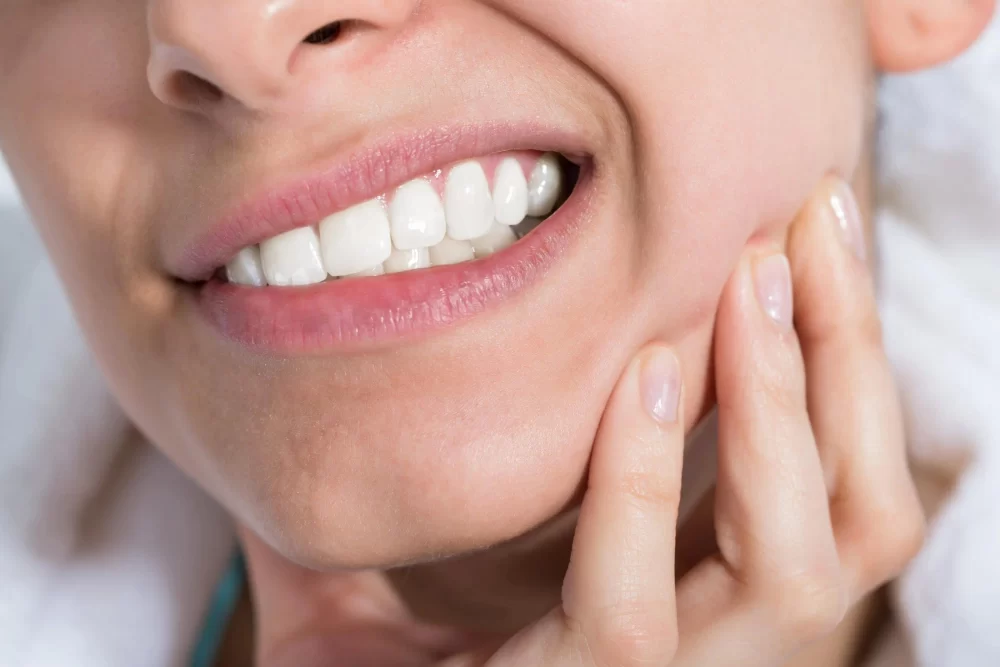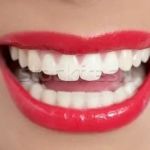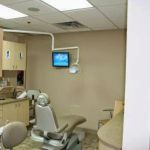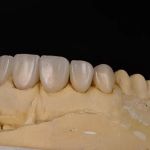
How to Protect Your Teeth from Bruxism
- 1. Understanding Bruxism and Its Impact
- 2. Signs and Symptoms of Bruxism
- 3. Causes of Bruxism
- 4. How to Protect Your Teeth from Bruxism
- 5. Bruxism Treatment Options
- 6. When to Seek Professional Help
1. Understanding Bruxism and Its Impact
Bruxism, commonly known as teeth grinding, is a condition in which individuals involuntarily grind or clench their teeth. This can occur during the day, but it is most commonly seen while sleeping, known as sleep bruxism. Bruxism is often associated with stress, anxiety, or misalignment of the teeth, but it can also be linked to other factors like lifestyle, medications, or medical conditions.
While grinding your teeth occasionally might not cause significant harm, habitual teeth grinding can lead to serious oral health problems. The constant pressure on the teeth and jaw can wear down tooth enamel, cause tooth sensitivity, lead to cracked or chipped teeth, and even affect the temporomandibular joint (TMJ), which connects the jaw to the skull.
In this article, we will explore how to protect your teeth from the damaging effects of bruxism, discuss treatment options, and provide practical tips for managing the condition effectively.
2. Signs and Symptoms of Bruxism
Bruxism may not always be immediately noticeable, especially if it occurs while sleeping. However, there are several signs and symptoms to look out for that may indicate you are grinding your teeth. Recognizing these early signs can help you take proactive steps to protect your teeth from damage.
- Worn Tooth Enamel: One of the most common signs of bruxism is visibly worn-down enamel. If you notice that your teeth appear flatter or have become more sensitive to hot or cold temperatures, it may be a sign that you’ve been grinding your teeth.
- Jaw or Facial Pain: Persistent pain or soreness in the jaw, facial muscles, or temples can indicate that your teeth grinding is straining your jaw muscles.
- Tooth Sensitivity: If your teeth become increasingly sensitive to temperature changes or pressure, it could be due to enamel wear caused by grinding.
- Headaches: Frequent morning headaches, especially around the temples, are common among people who grind their teeth at night.
- Chipped or Cracked Teeth: If you notice small cracks, chips, or fractures in your teeth, this could be a direct result of excessive pressure from teeth grinding.
If you experience any of these symptoms, it's important to visit your dentist to assess the damage and discuss preventive measures to avoid further harm to your teeth and jaw.
3. Causes of Bruxism
Bruxism can have various underlying causes, and understanding these factors can help you better manage or prevent the condition. Some of the most common causes of bruxism include:
- Stress and Anxiety: Emotional stress and anxiety are the leading causes of bruxism, especially nighttime grinding. The tension and pressure caused by stress can cause your jaw muscles to tighten, leading to unconscious grinding during sleep.
- Misaligned Teeth or Bite Issues: If your teeth are misaligned or you have an uneven bite, this can lead to teeth grinding. When your teeth do not fit together properly, your body may grind them together to find a comfortable resting position.
- Sleep Disorders: Conditions like sleep apnea, snoring, or restless leg syndrome can increase the likelihood of bruxism. Poor sleep quality can also contribute to the development of the condition.
- Lifestyle Factors: Caffeine, alcohol, and drug use are often associated with an increased risk of bruxism. Excessive consumption of these substances can lead to teeth grinding, especially when consumed close to bedtime.
- Medications: Certain medications, particularly those used for depression or anxiety, may have bruxism as a side effect. If you suspect that your medication is contributing to teeth grinding, consult with your healthcare provider for alternatives.
By identifying the root cause of your bruxism, you can take targeted steps to address the issue and protect your teeth from the damaging effects of grinding.
4. How to Protect Your Teeth from Bruxism
There are several ways to protect your teeth from the damage caused by bruxism. These protective measures can help reduce the strain on your teeth and jaw, preventing further wear and tear. Here are some tips on how to protect your teeth:
- Wear a Nightguard: A nightguard or bite guard is one of the most effective ways to protect your teeth from the impact of grinding during sleep. Custom-made or over-the-counter options are available to create a protective barrier between your teeth and reduce the effects of grinding.
- Reduce Stress: Stress is one of the leading causes of bruxism. Practicing relaxation techniques such as deep breathing, meditation, or yoga can help alleviate stress and reduce the likelihood of grinding your teeth at night.
- Maintain Proper Sleep Hygiene: Ensuring you get adequate rest is crucial for reducing bruxism. Try to establish a consistent sleep routine, avoid caffeine and alcohol in the evening, and create a calming bedtime environment to promote better sleep quality.
- Correct Bite Problems: If your teeth or jaw alignment is contributing to your bruxism, consult with your dentist about treatments to correct your bite. Orthodontic interventions, dental restorations, or bite adjustment procedures can help alleviate the underlying cause of teeth grinding.
These steps can help significantly reduce the damage caused by bruxism and provide long-term protection for your teeth and jaw.
5. Bruxism Treatment Options
If you’ve been diagnosed with bruxism, there are a variety of treatment options available to address the condition. These treatments aim to reduce the frequency and severity of teeth grinding, protect your teeth, and relieve associated symptoms. Some treatment options include:
- Dental Appliances: As mentioned earlier, nightguards are an effective way to protect your teeth from grinding. Your dentist can create a custom nightguard that fits comfortably over your teeth to absorb the pressure from grinding.
- Behavioral Therapy: If your bruxism is caused by stress or anxiety, cognitive behavioral therapy (CBT) may be recommended. CBT can help you identify the causes of stress and develop coping mechanisms to reduce teeth grinding.
- Medications: In severe cases, medications such as muscle relaxants or Botox injections may be prescribed to relax the jaw muscles and reduce the frequency of teeth grinding.
- Physical Therapy: For those who experience jaw pain or muscle tightness due to bruxism, physical therapy or massage therapy may help relieve tension in the jaw muscles and alleviate discomfort.
It’s important to work with your dentist to find the best treatment plan for your specific needs. Each case of bruxism is different, and a personalized approach is key to managing the condition effectively.
6. When to Seek Professional Help
If you suspect you have bruxism, it’s important to consult with your dentist as soon as possible. The sooner you address the issue, the better your chances of preventing long-term damage to your teeth and jaw. Here are some signs that it’s time to seek professional help:
- Persistent jaw or facial pain
- Cracked or chipped teeth
- Frequent headaches or earaches
- Difficulty opening or closing your mouth
- Noticeable wear or flattening of your teeth
Don’t wait until your symptoms worsen. Early intervention can help protect your dental health and ensure that your bruxism is managed effectively.







 Aspen Dental - Charleston, WV4.0 (497 review)
Aspen Dental - Charleston, WV4.0 (497 review) Comprehensive Dental Group4.0 (193 review)
Comprehensive Dental Group4.0 (193 review) 24 Hour Dentist3.0 (450 review)
24 Hour Dentist3.0 (450 review) Dr. Geetha J. Damodaran, DDS5.0 (2 review)
Dr. Geetha J. Damodaran, DDS5.0 (2 review) Corsi Dental Associates4.0 (789 review)
Corsi Dental Associates4.0 (789 review) Pristine Dental Service4.0 (65 review)
Pristine Dental Service4.0 (65 review) The Importance of Oral Health Education During Pregnancy for a Healthy Pregnancy
The Importance of Oral Health Education During Pregnancy for a Healthy Pregnancy Best Tips for Brushing Your Teeth Properly for Healthy Gums: Essential Techniques for Oral Health
Best Tips for Brushing Your Teeth Properly for Healthy Gums: Essential Techniques for Oral Health Why Skipping Dental Checkups Can Lead to Bigger Oral Health Problems
Why Skipping Dental Checkups Can Lead to Bigger Oral Health Problems Advantages of Porcelain Dental Restorations
Advantages of Porcelain Dental Restorations How Can Diabetes Cause Tooth and Gum Problems? Preventing and Managing Oral Health Issues
How Can Diabetes Cause Tooth and Gum Problems? Preventing and Managing Oral Health Issues Healthy Habits for Promoting Good Oral Health and Hygiene: Tips for a Healthy Smile
Healthy Habits for Promoting Good Oral Health and Hygiene: Tips for a Healthy Smile